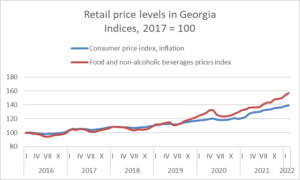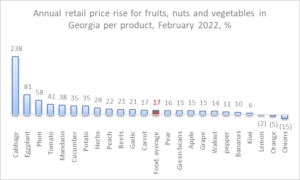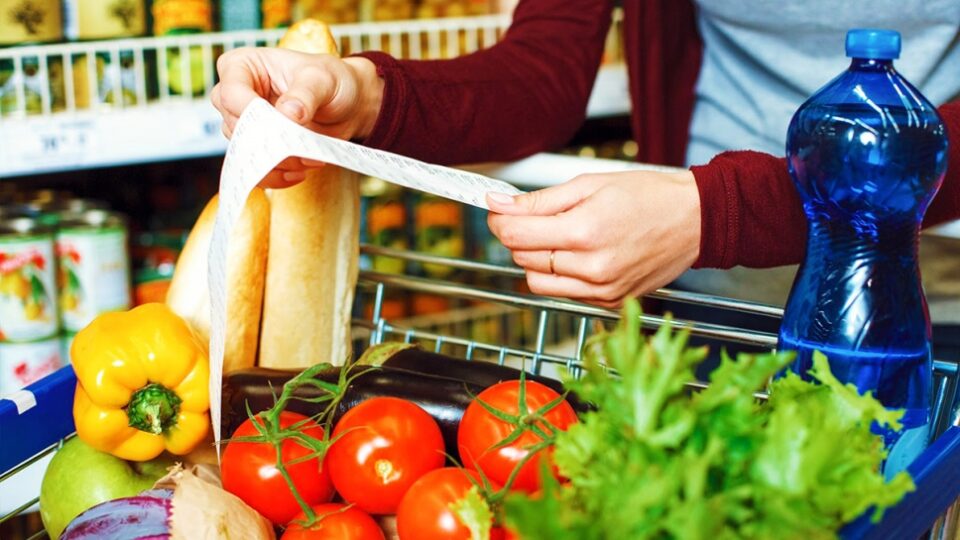EastFruit analysts note that prices for Georgian consumers continue to grow at a very fast rate. The annual inflation rate in February 2022 was 14%, which is about 5 times higher than the inflation target of the National Bank of Georgia. Food prices are worrisome.
In February 2022, the Georgians had to pay 17% more for food and non-alcoholic drinks than last year.

Data source: GeoStat, National Statistical Service of Georgia
The prices of goods and services have been rising rapidly for some time now. Food prices have been rising especially fast since 2019, due to currency devaluation, political tensions, the COVID-19 pandemic (since 2020) and related issues.
What is most interesting right now is that the prices of many mass-produced vegetables, fruits, and nuts are far above the average food price increase and target inflation.

Data source: GeoStat, National Statistical Service of Georgia
Georgian consumers have to pay, on average, around 30% more for the products on the table. Some have fallen in price compared to February 2021. Lemons, oranges and onions fell by 2-15% in February. Their prices are highly dependent on imports, and import volumes increased significantly in January-February 2022 compared to the same period in 2021.
The main problem with unusually high inflation rates is that household incomes are not growing as fast as prices. While it is impossible to live without food, people may stop consuming some other things and services. Thus, to consume the same amount of food, Georgian citizens need to spend less on other goods and services. However, Georgian farmers will suffer: people who work in other areas also need food. If sales in their sector fall sharply, the same will happen to their incomes, meaning that purchasing power will decrease. Some may change their consumption patterns and switch to cheaper products.
According to the National Bank of Georgia, it was expected that inflation in Georgia would start to slow down in 2022, but so far the expectations have not been met. The current high prices are the result of global problems, not problems specific to Georgia. Inflation is an issue everywhere, but it is much higher in Georgia due to an underdeveloped supply chain. While commodity prices have generally risen, Georgia is likely to be hit the hardest by the price of crude oil, which is at the highest level in the global markets for the last 6 years. The latter, of course, is connected with russia’s unjust war against Ukraine.
Looking ahead, we note that there are some concerns about the reduction in foreign demand. Georgia has significant exports to Russia, which are likely to decline, given the sanctions. Finding other markets and bringing the supply chain up to higher standards will take time. Some Georgian farmers who have exported to Russia will have to sell their products on the local market. This will put downward pressure on food prices. However, the overall picture of food prices in Georgia remains blurred amid the war in Europe.
The use of the site materials is free if there is a direct and open for search engines hyperlink to a specific publication of the East-Fruit.com website.




